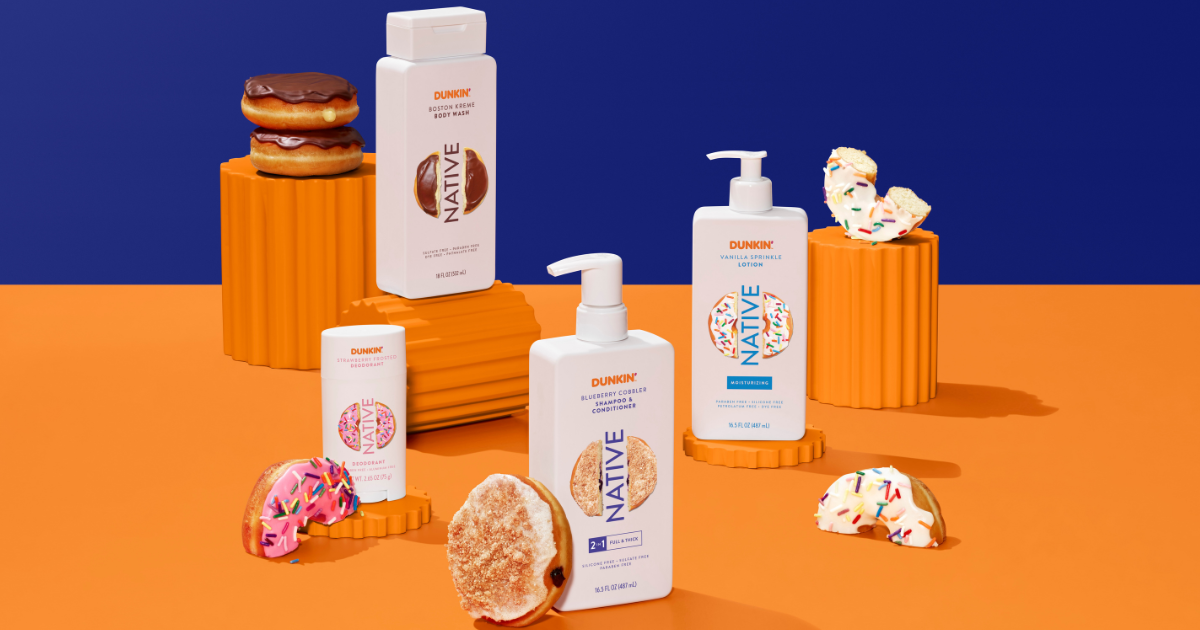Personal Care Products Expand with Snack Brands

By Mark Seavy
Personal care products are taking a bite out of the licensing business through unexpected partnerships with food and snack brands.
Personal care items have long engendered brand loyalty but they’re increasingly stretching beyond the beauty aisle to deliver notes of coffee, baked goods, and other scents.
These limited-edition promotions are aimed largely at younger consumers, specifically Gen Z—a demographic that has come to expect unexpected brand combinations that are vegan and free of harmful chemicals.
Hostess, whose core customer is 45 years of age and older, licensed Glamlite (which has 586,000 followers on Instagram) for Twinkies lip scrub, lipstick, and lipliner as well as CupCakes body butter. The collaboration’s two-week promotional period in late September attracted 75 million views and 300 influencers created content about the products across YouTube, TikTok, and Instagram, said Bill McClinton, President of Global Icons, which represents Hostess. Nails Inc. also launched an exclusive Twinkies body wash and bath bomb kit at Walmart in December and plans to add nail polish later this year.
Proctor & Gamble, meanwhile, paired its Native solid stick deodorant, shampoo, body wash, lotion, and conditioner with the scents of Dunkin’s donuts, including strawberry-frosted and Boston Kreme. Native also partnered with independent bottler Novamex’s Jarritos fruit-flavored soda brand for watermelon, pineapple, mandarin, and passion fruit deodorant and body wash. And that was in addition to Unilever’s Dove brand striking a licensing deal with 1,071-store Crumbl Cookies for Lemon Glaze body wash, Strawberry Crumb Cake deodorant, and Confetti Cake body scrub.
“The skincare/personal care category on the whole has been trending up for years as a result of Gen Z’s social engagement, which has in turn influenced Gen Alpha,” said Todd Kaufman, VP for Strategy and Partnerships at Beanstalk. “Brands are looking to create new purchase occasions and have turned to arguably the most effective industry to collaborate with—food and beverage. The partnerships create disruption and newness at retail and help the brand reach a wider audience.”
That wider audience includes the “Sephora Girl” trend involving tech-savvy tweens (nine to 12 years old) and young teens (13 to 15 years old). The trend has been fed by a flood of tween skincare videos on TikTok, YouTube, and Instagram as well as by adults taking an influx of Generation Alpha (14 years and under) inside beauty stores to buy more premium cosmetics brands like Drunk Elephant (cosmetics and skincare), bareMinerals (makeup), Charlotte Tilbury (makeup), and others. Sephora has more than 2,700 stores, including 1,666 in the U.S.
“With the unusual combinations, licensors recognize that is what moves the needle to get impressions,” McClinton said. “If we brought these [deals] to them 10 to 15 years ago, licensors would have thought you were crazy. It’s now the weirder [the combination], the better.”
These (typically) limited time promotions are frequently fed by a direct-to-consumer business and therefore aren’t necessarily major sales drivers—only a few thousand units are typically produced for each SKU—but their impact goes beyond the bottom line.
“We are seeing it more as a direct-to-consumer business than the products living every day on a retail shelf,” a licensing executive said. “It is more about brand recognition and appealing to a younger demographic because aging down is important to many brands these days. The revenue is OK, but it won’t show up in an earnings report.”




